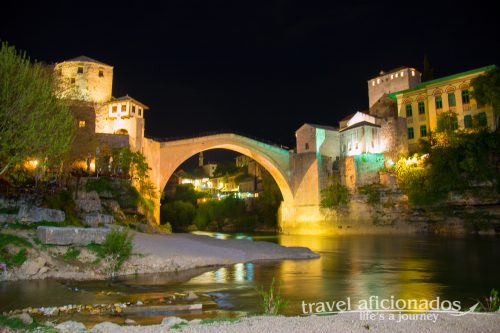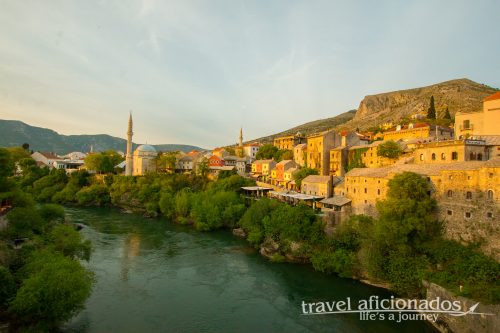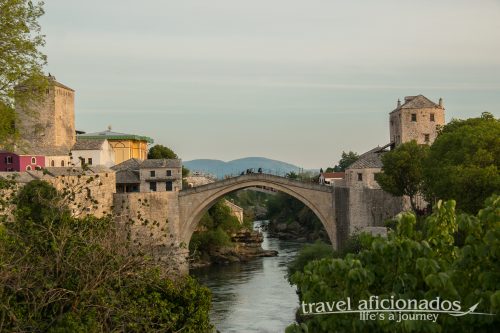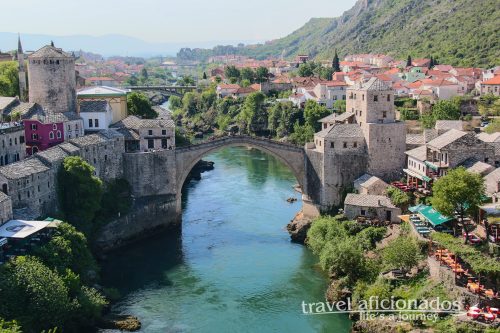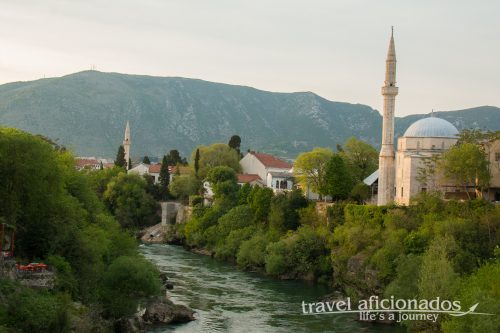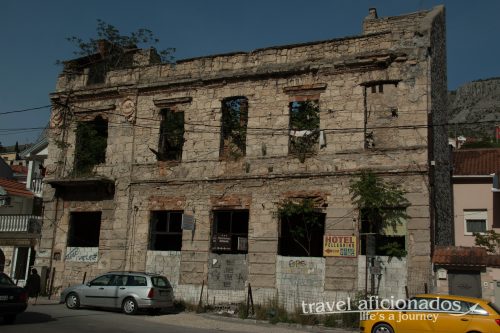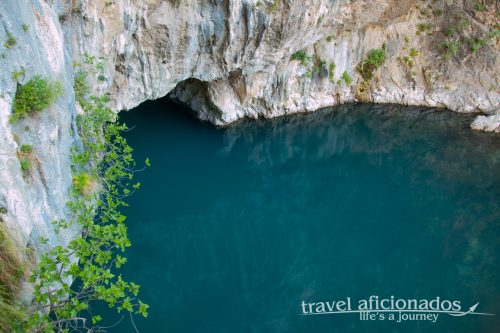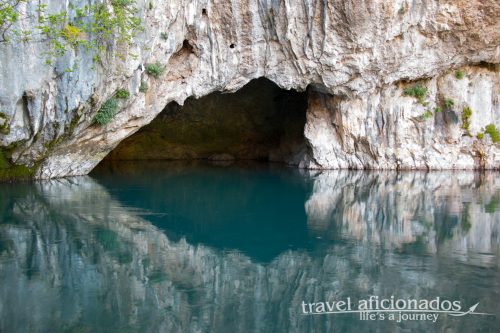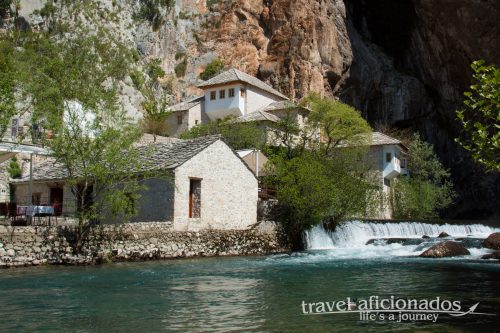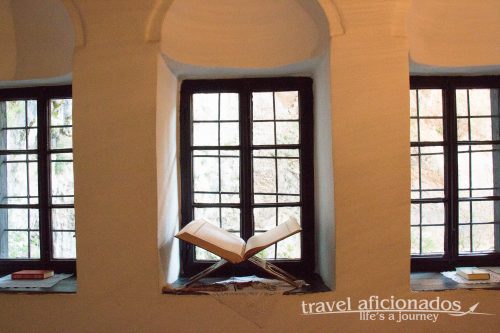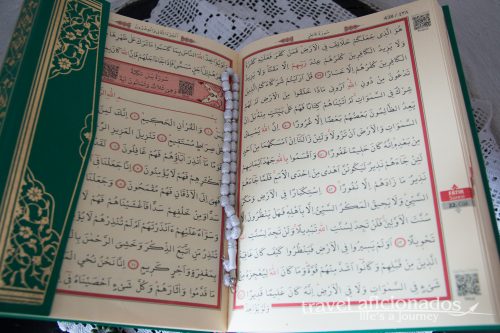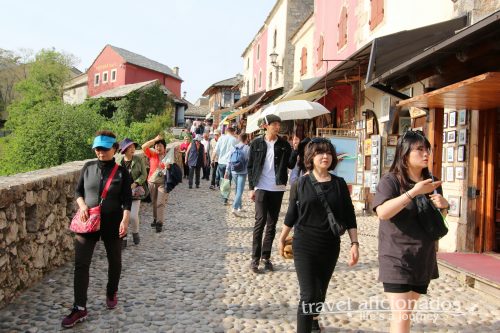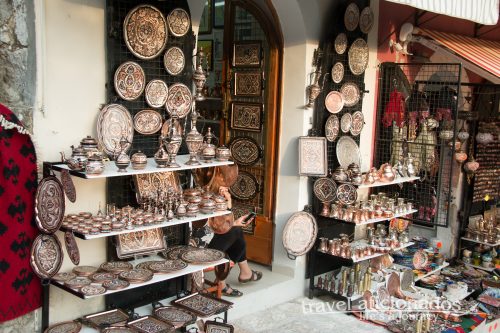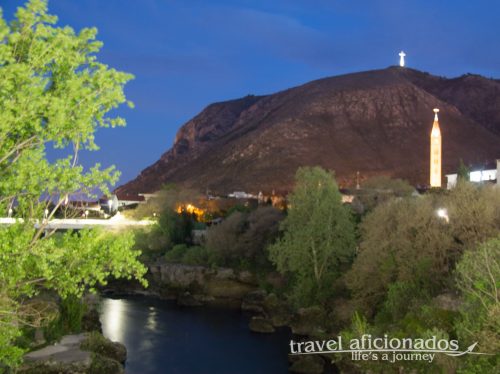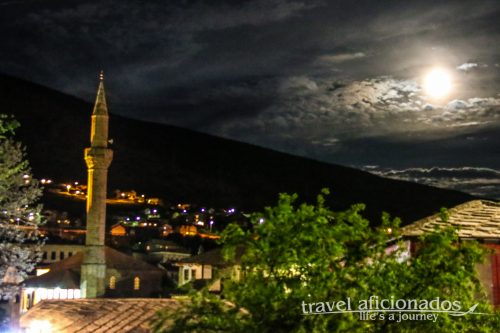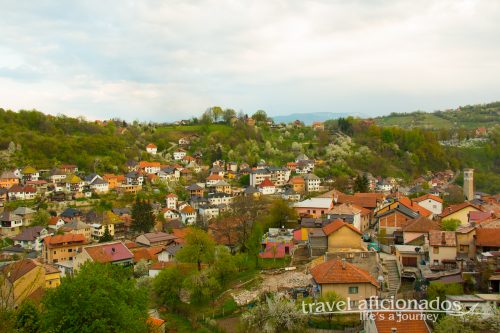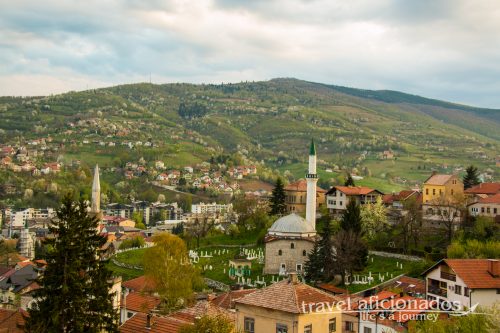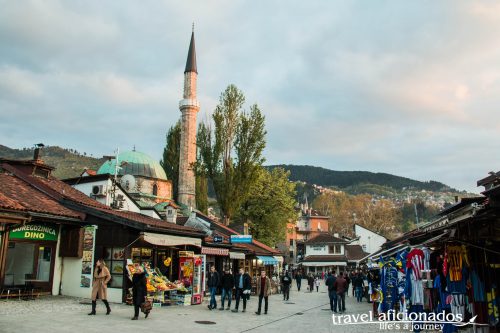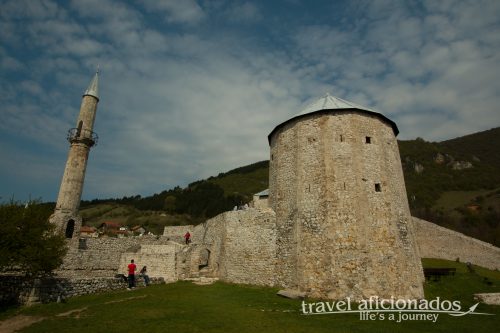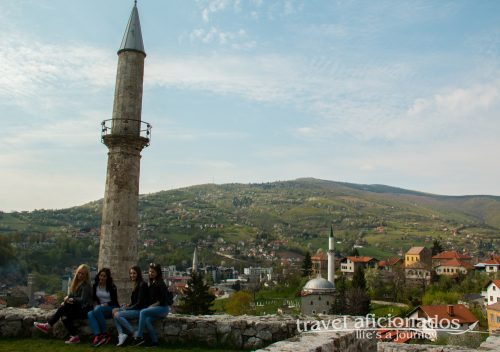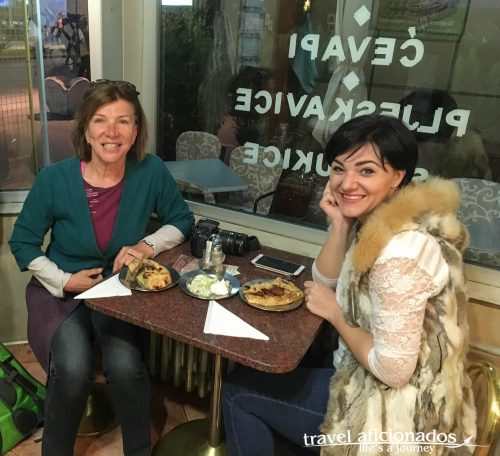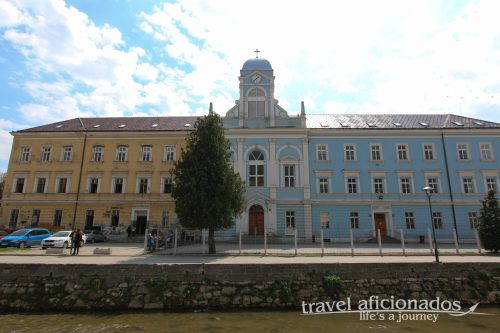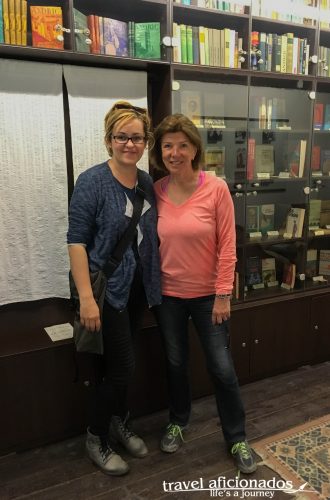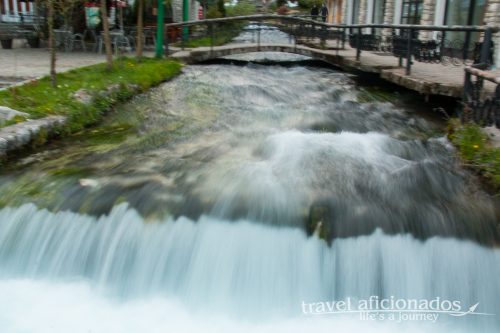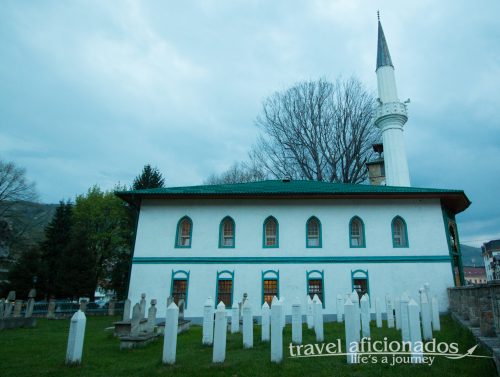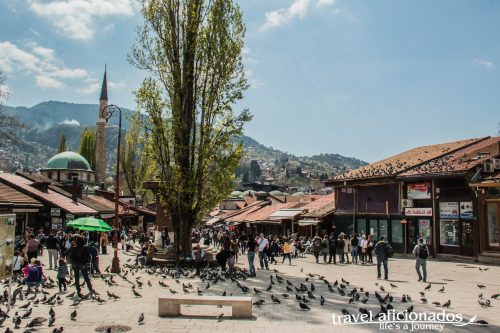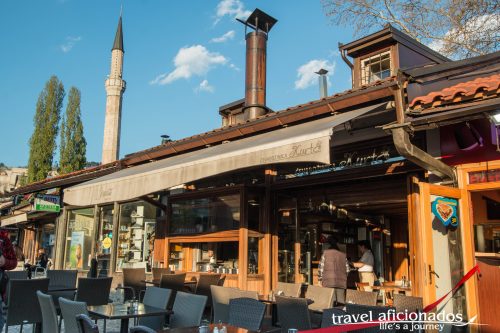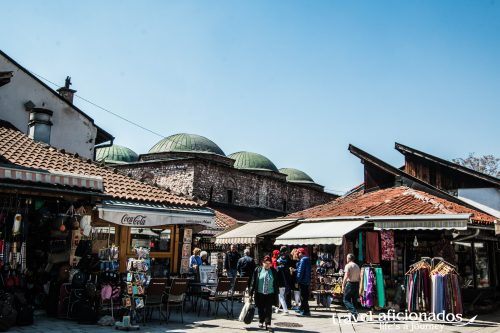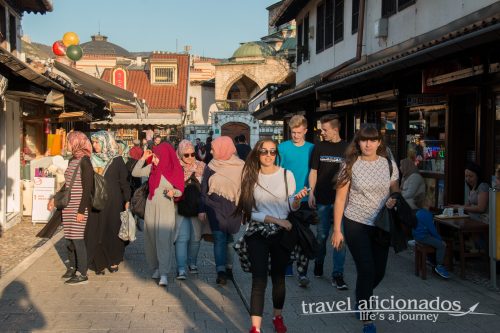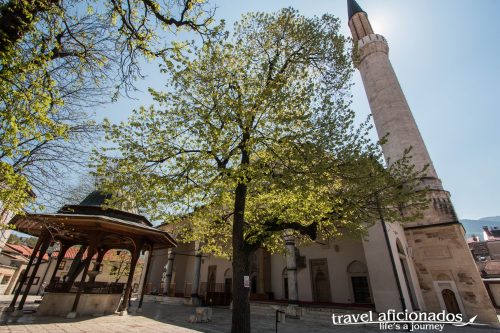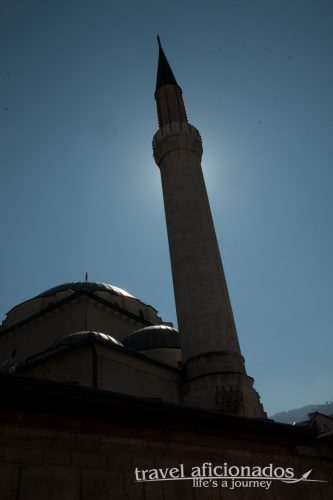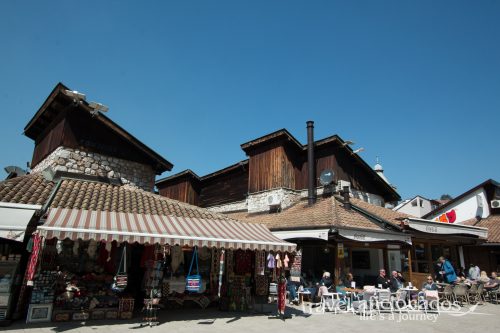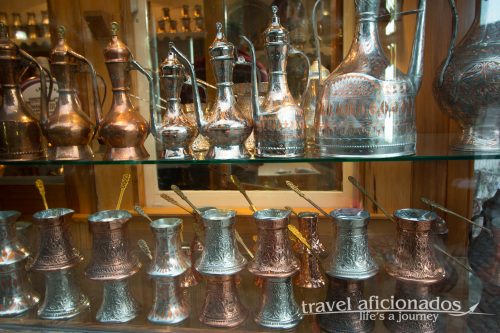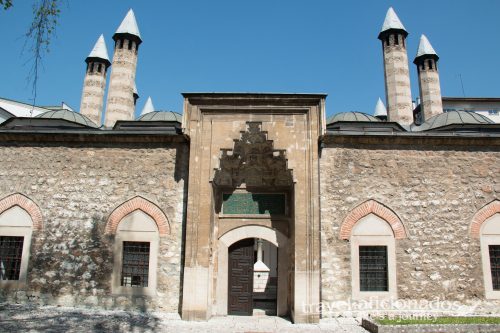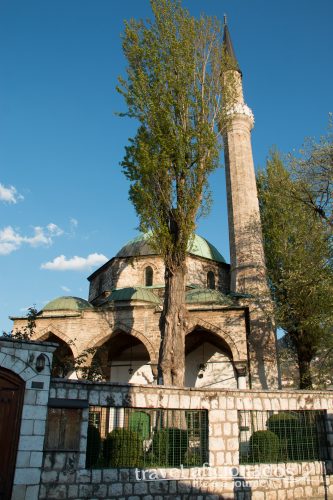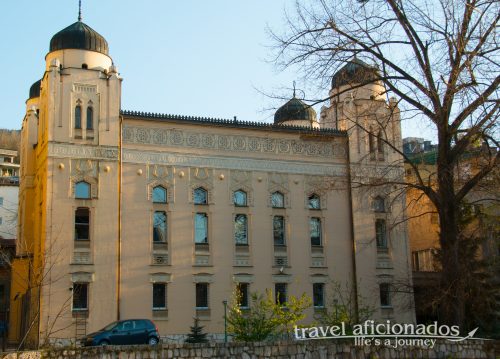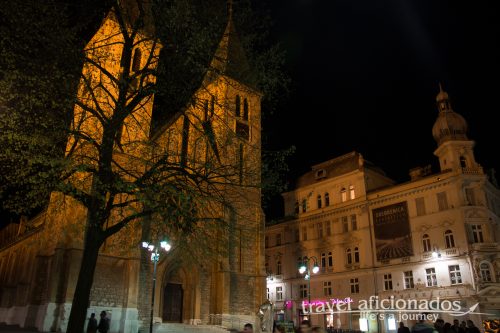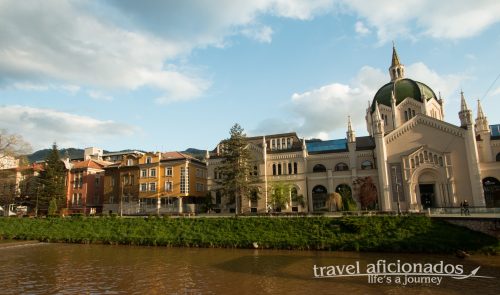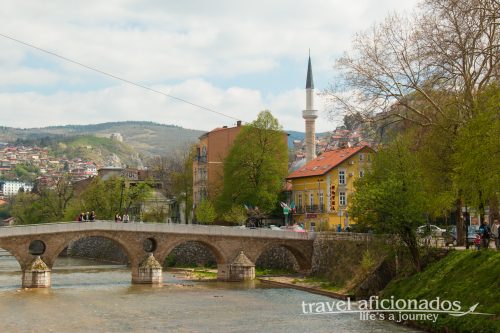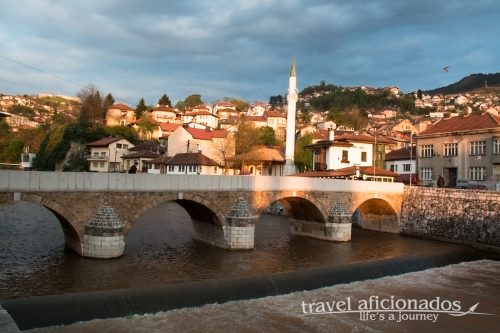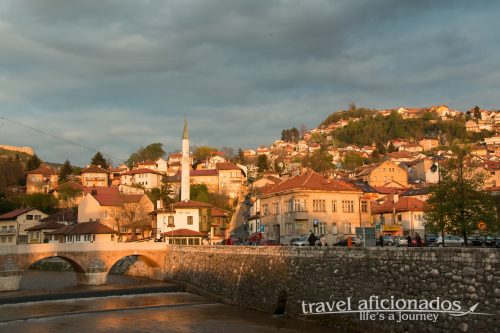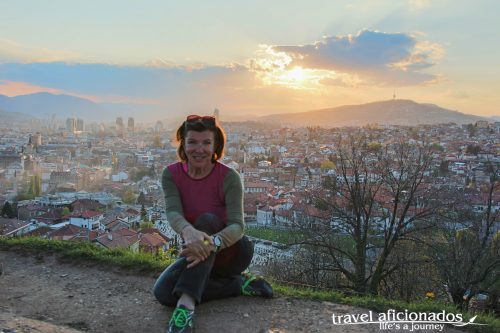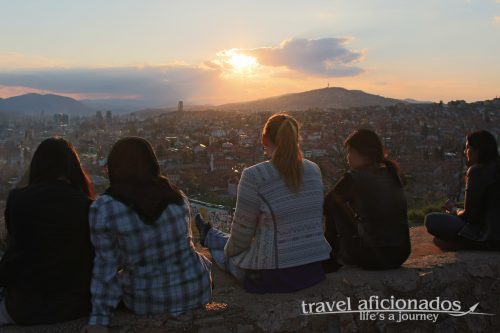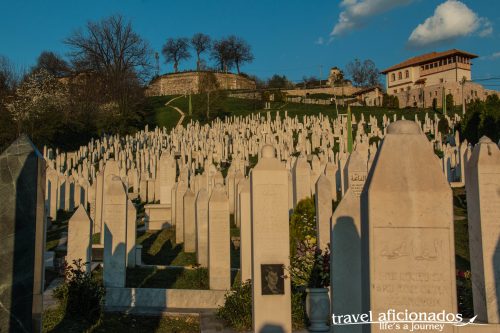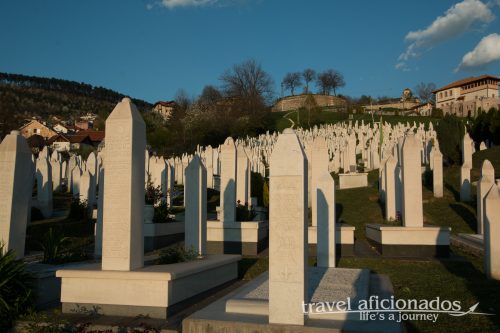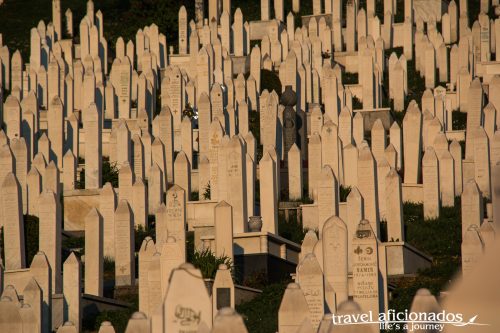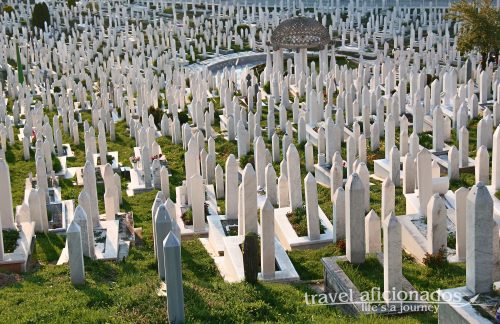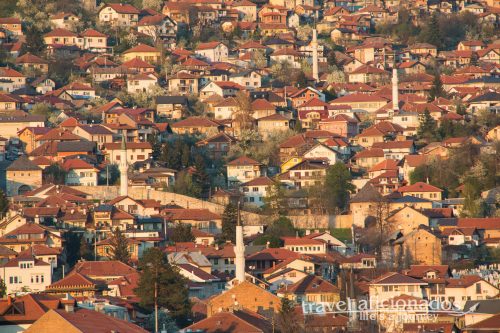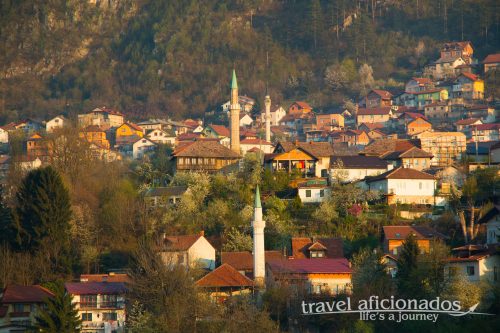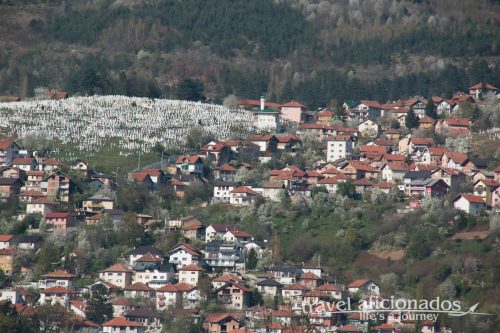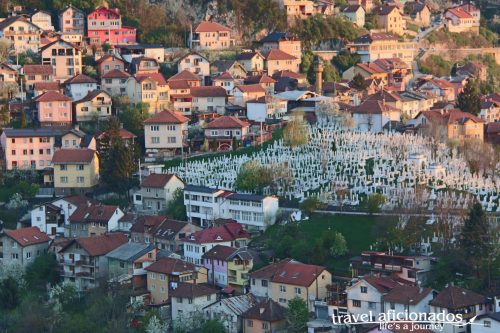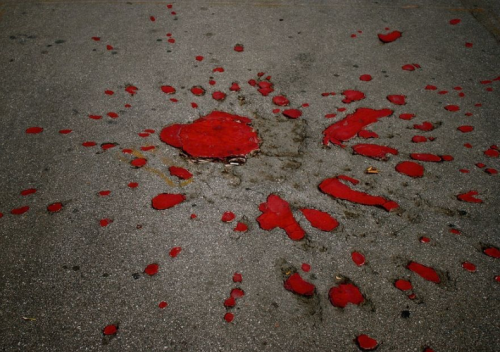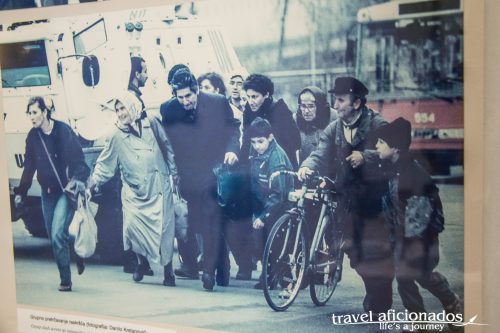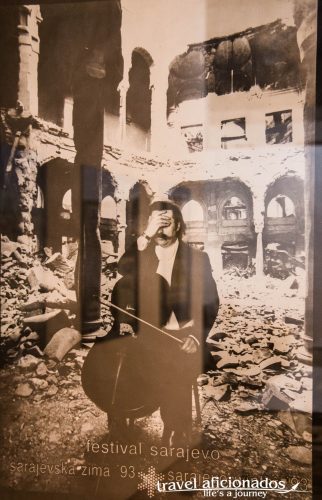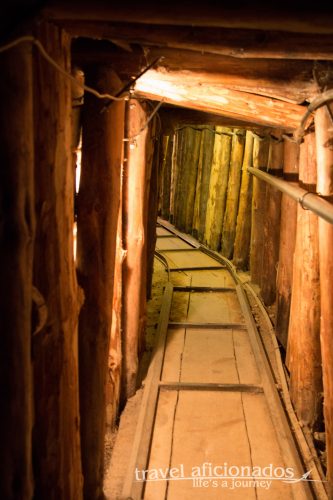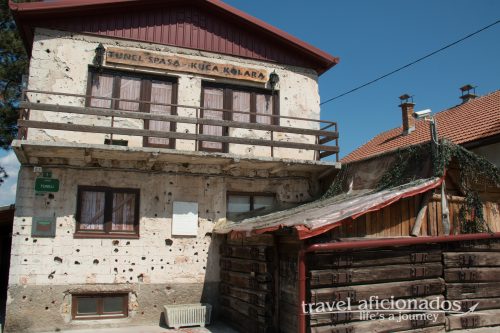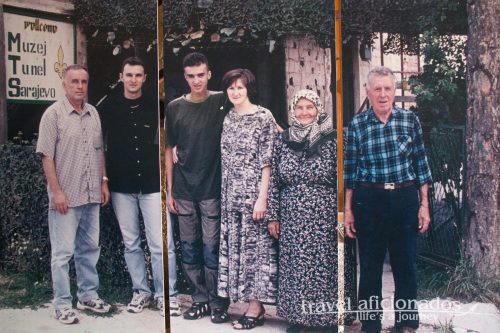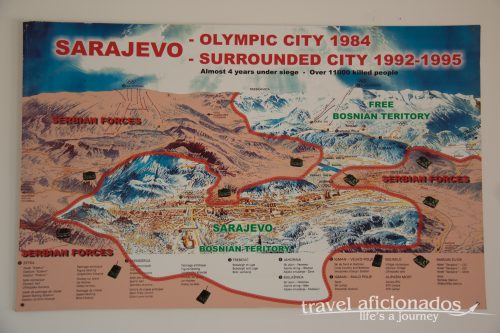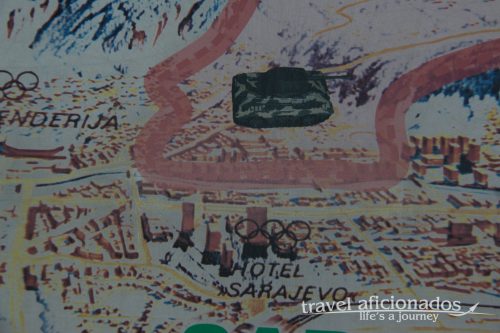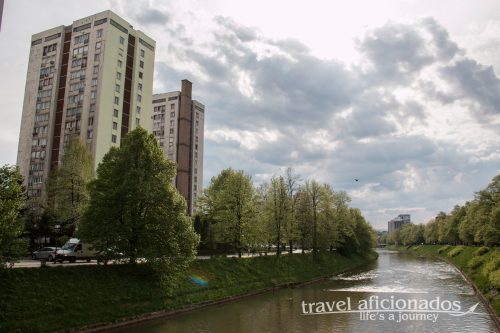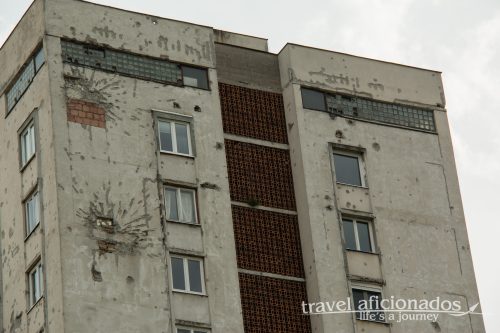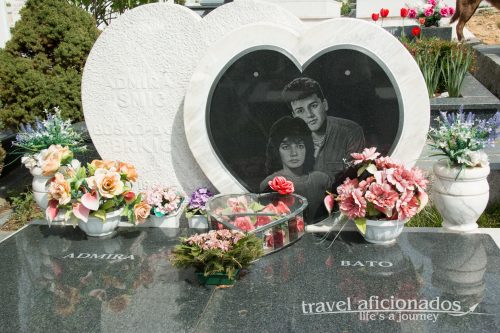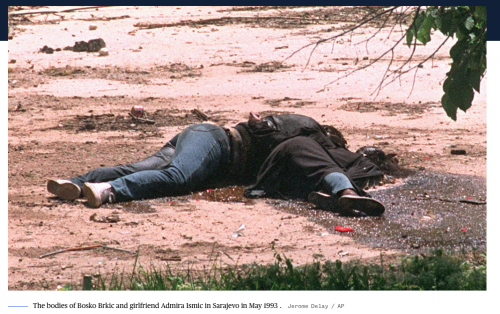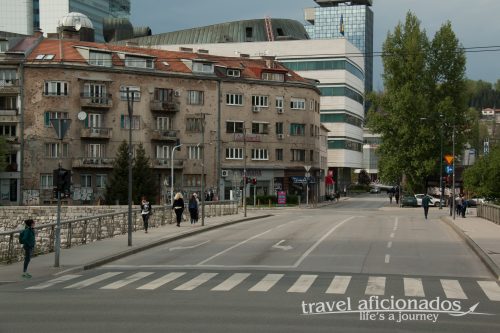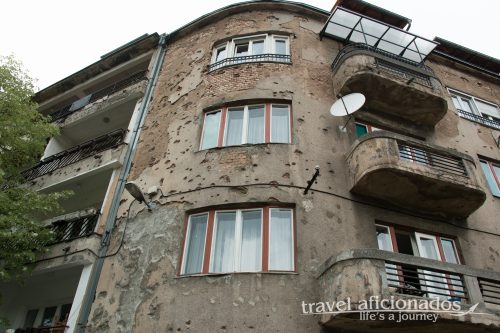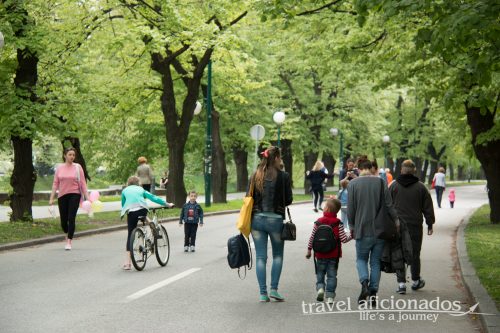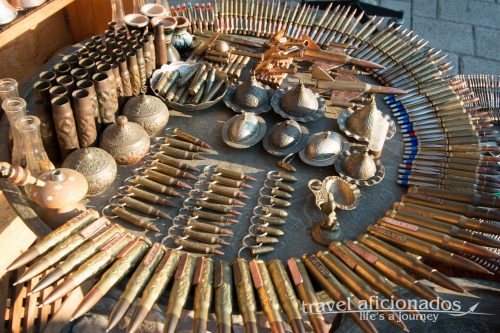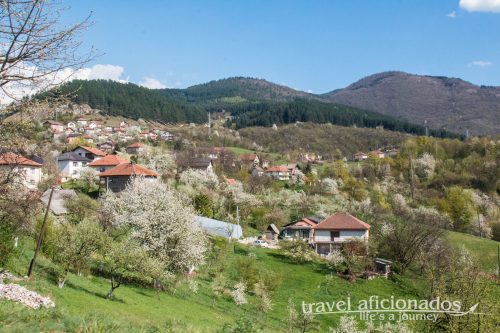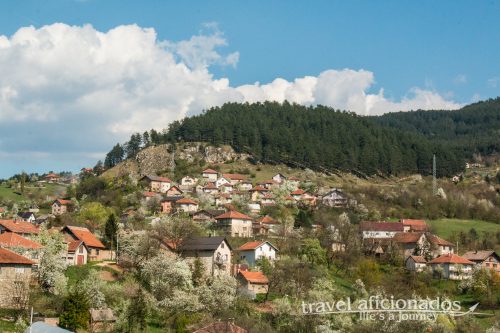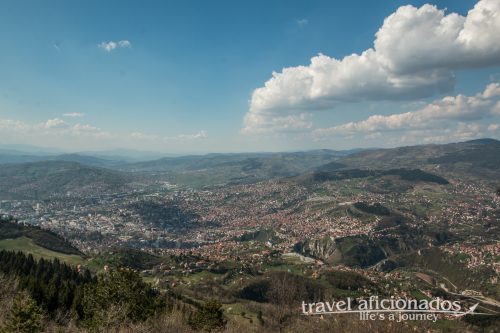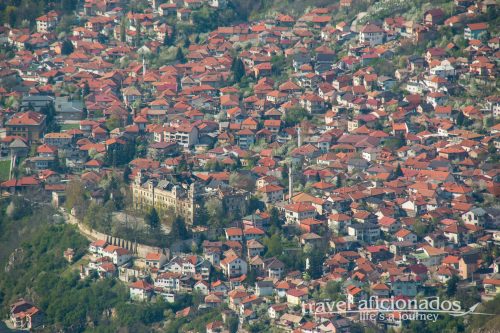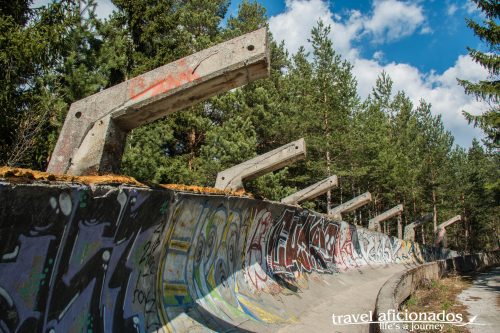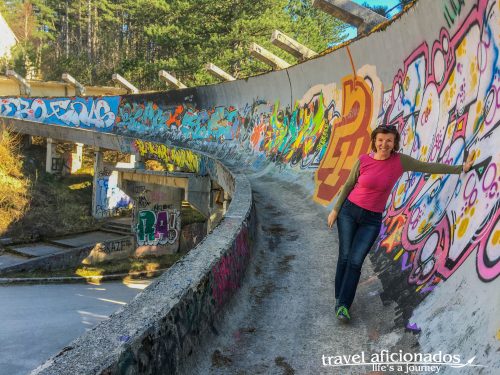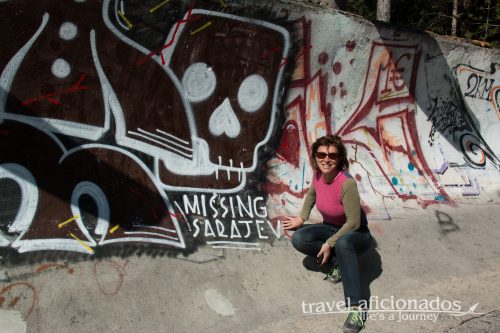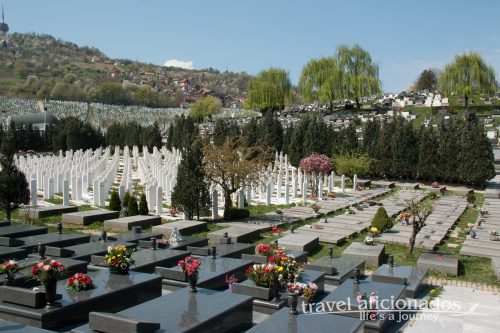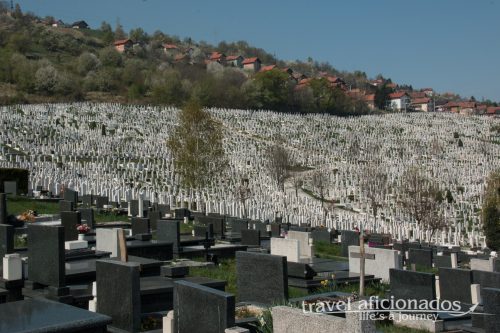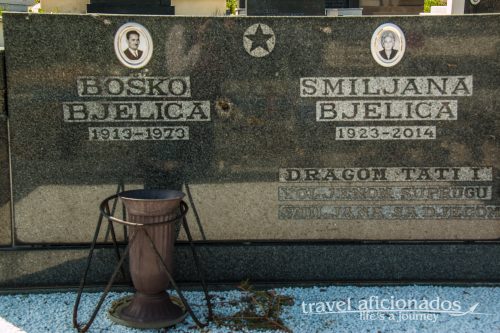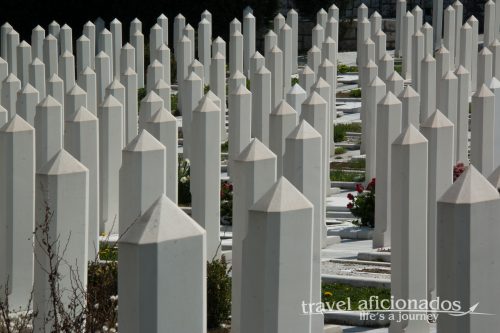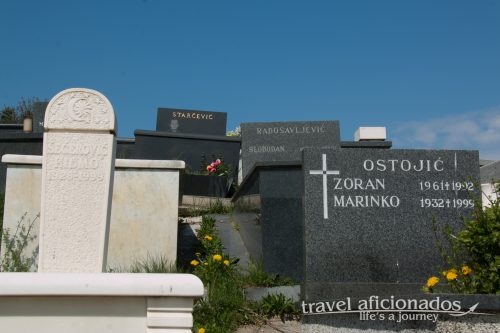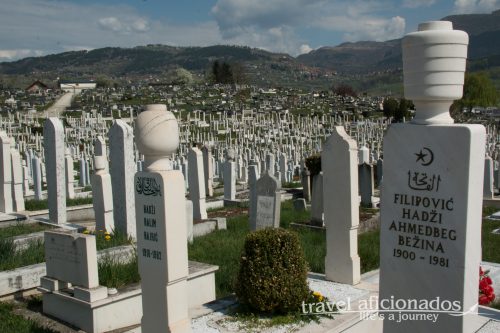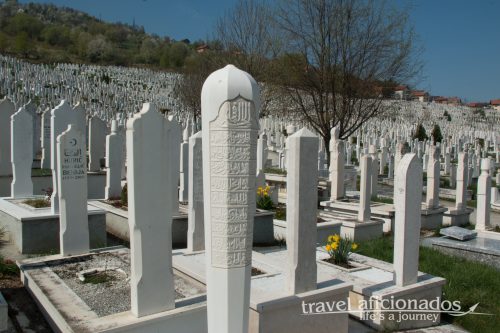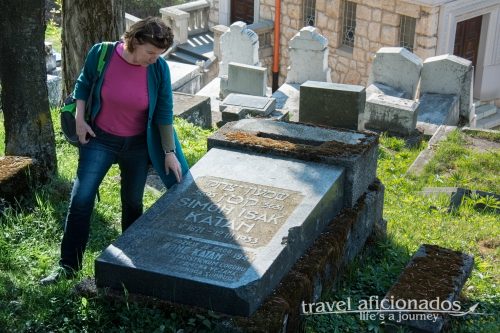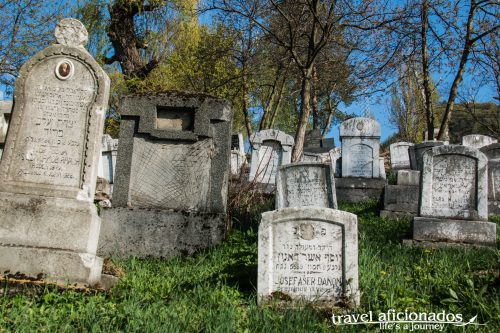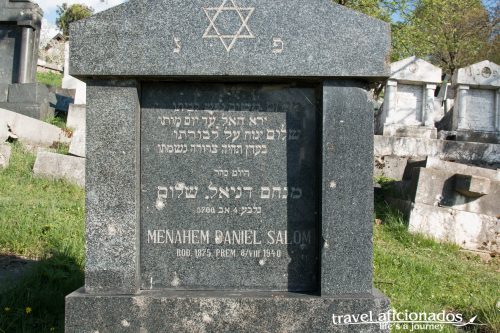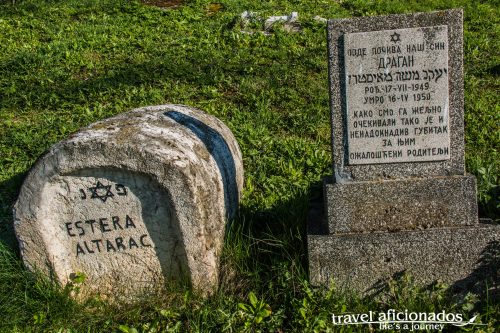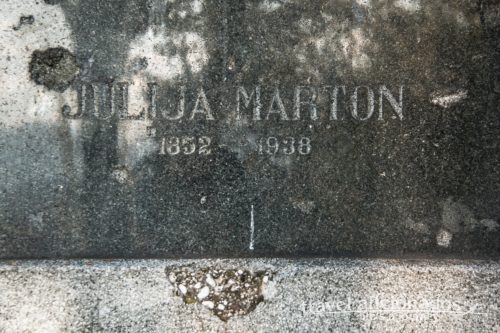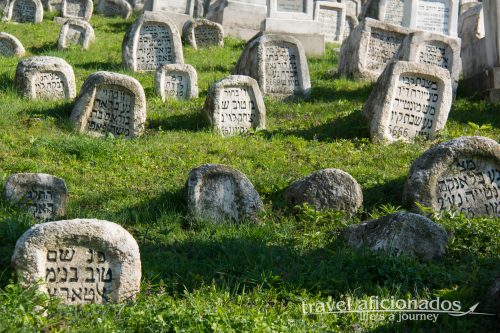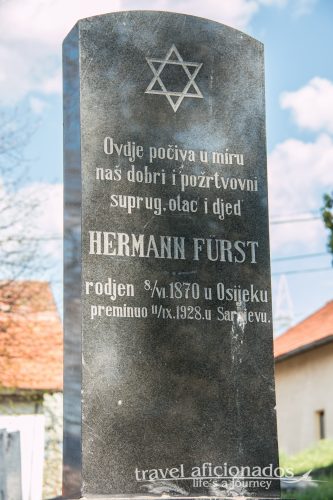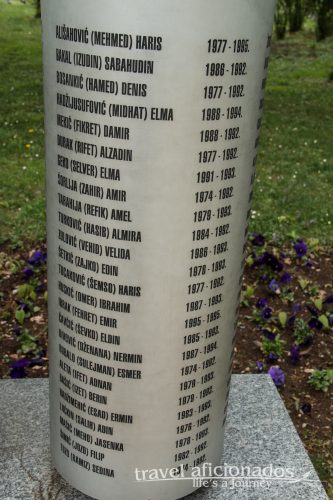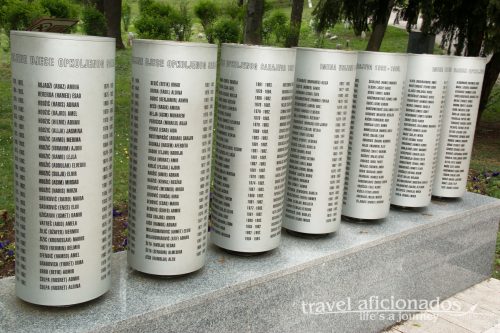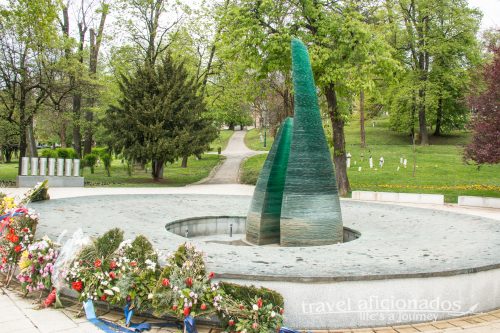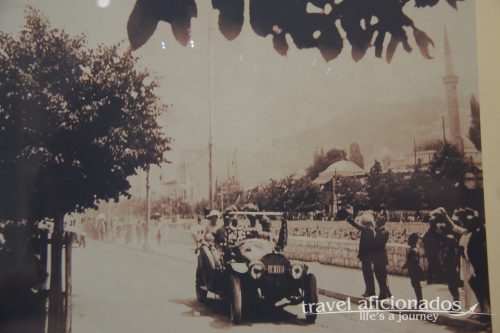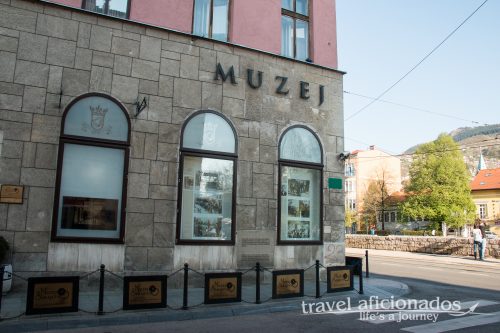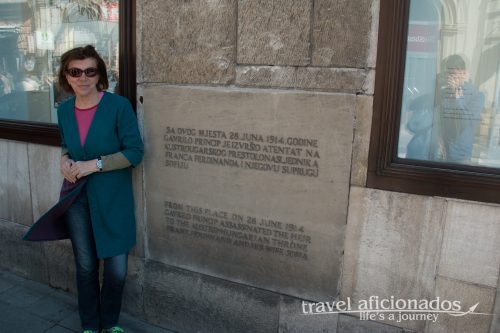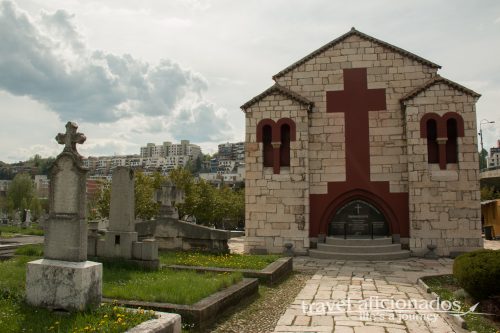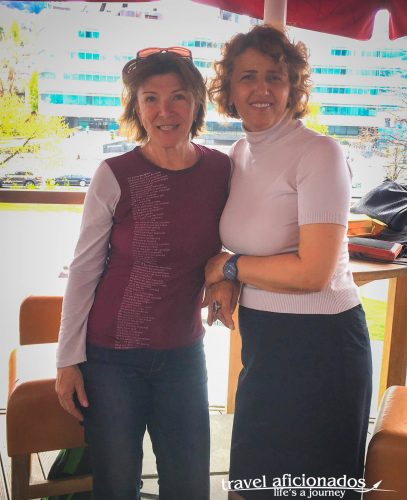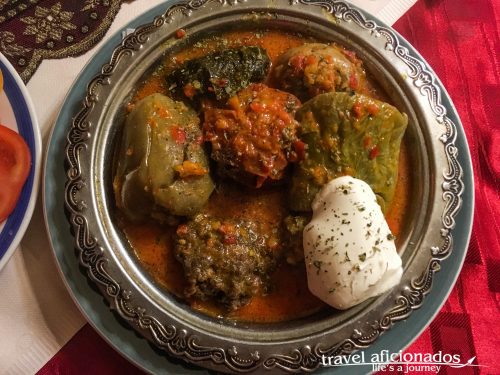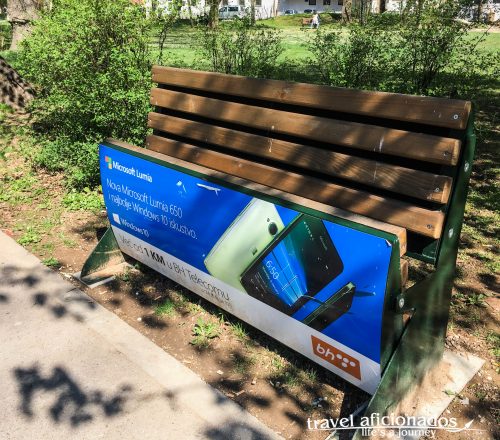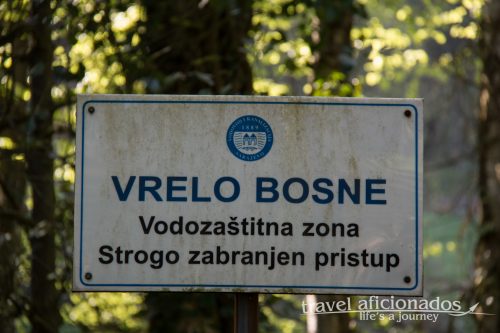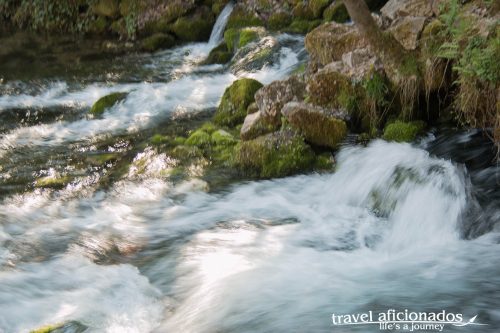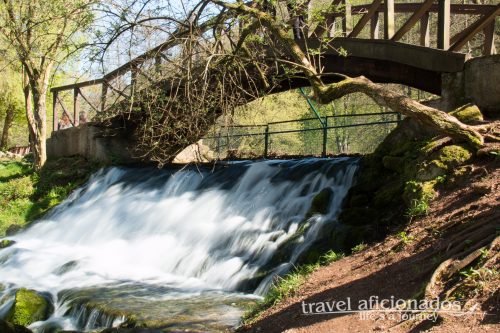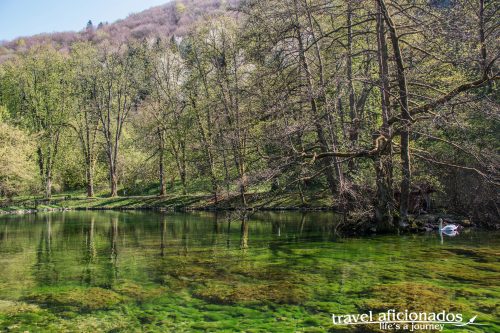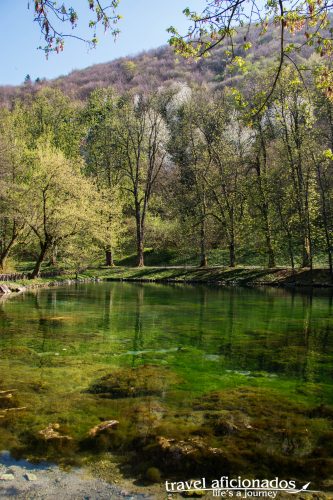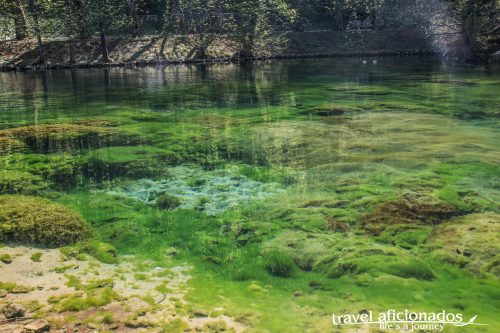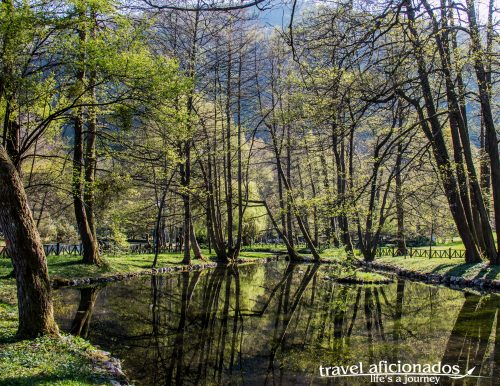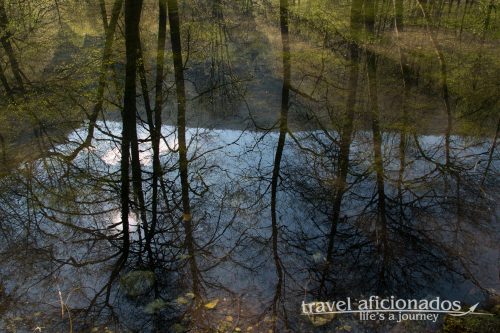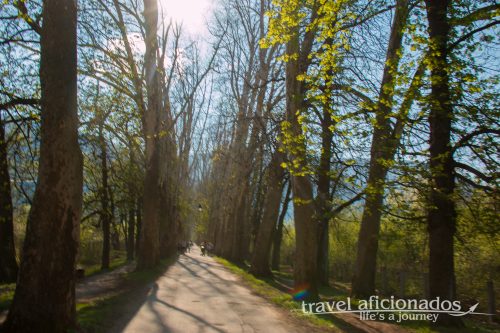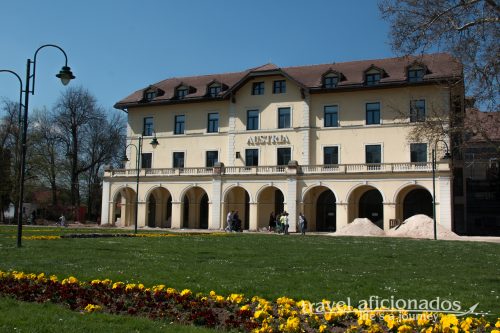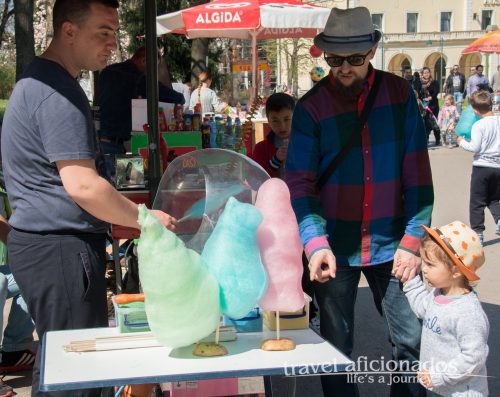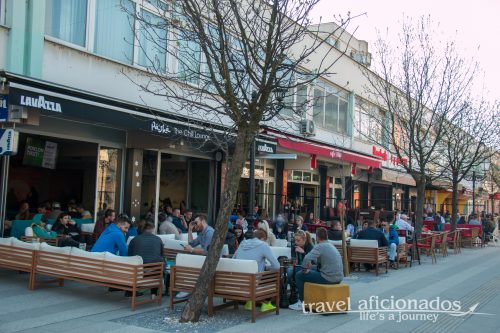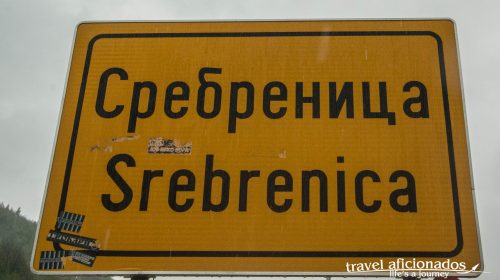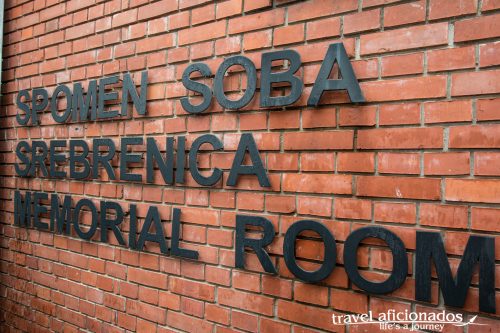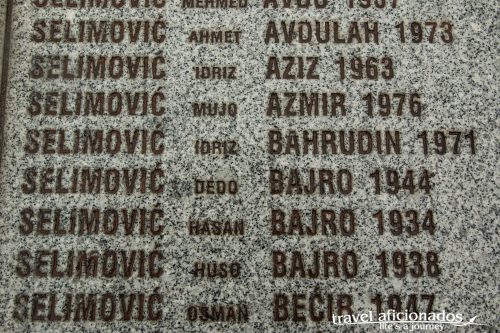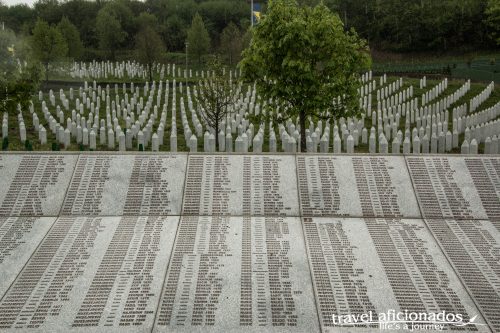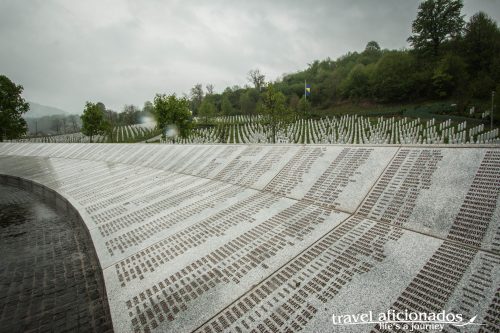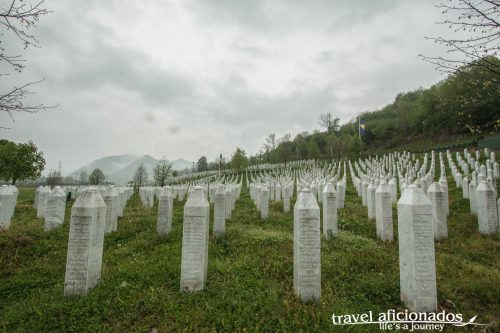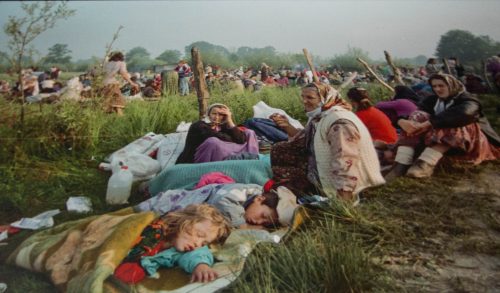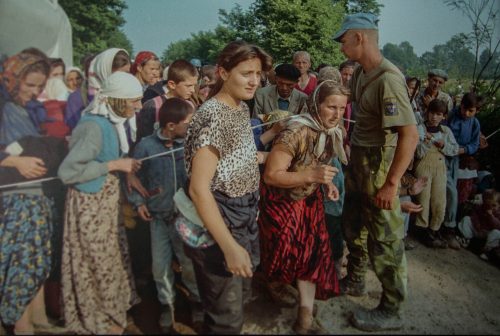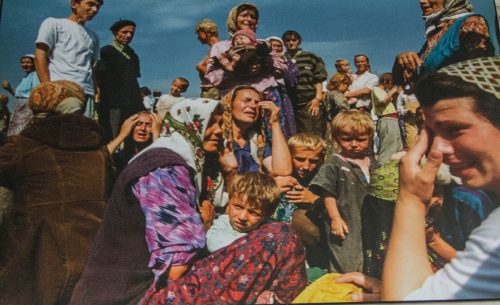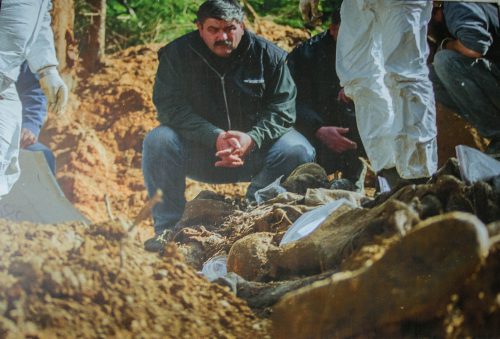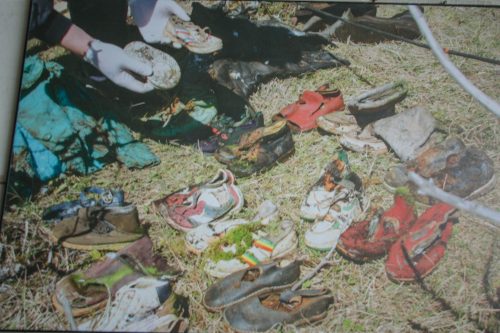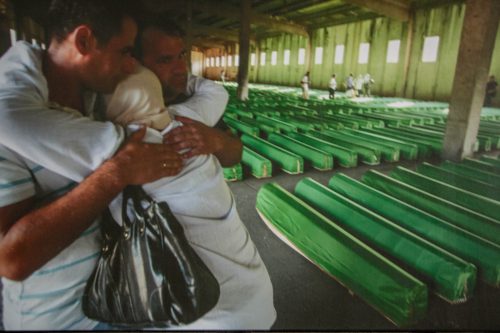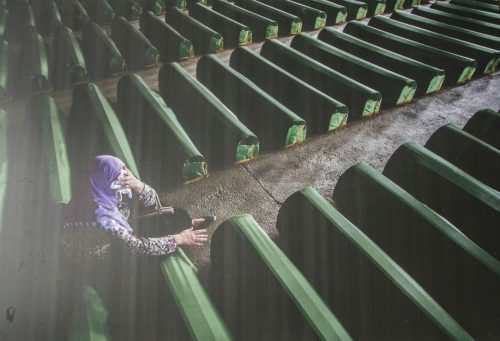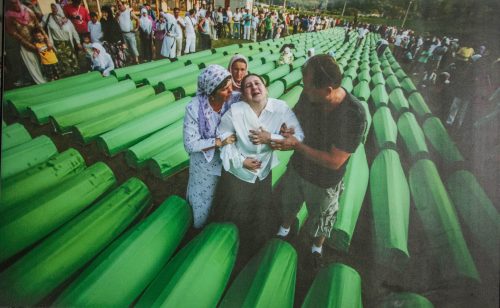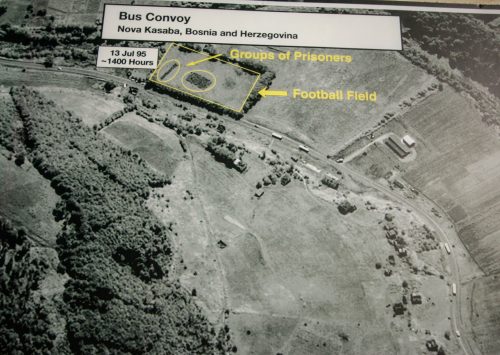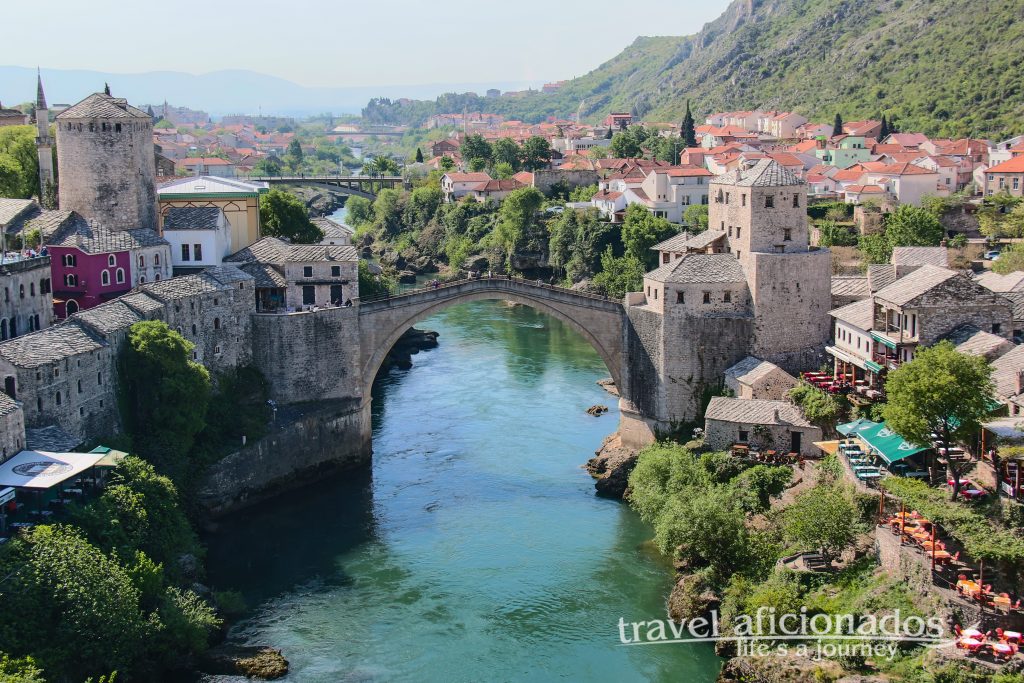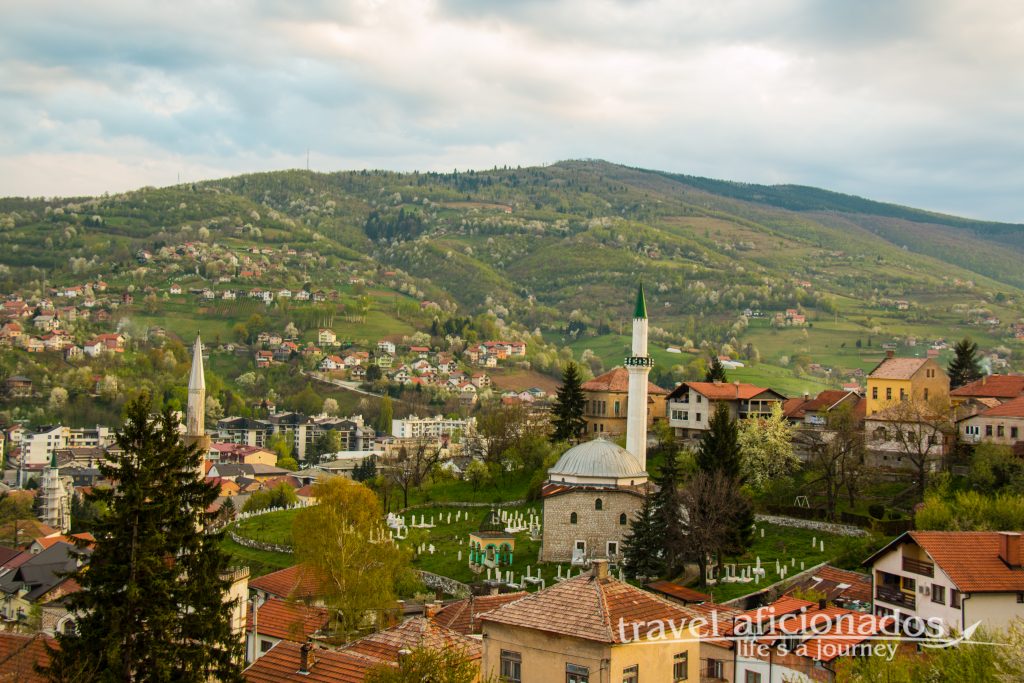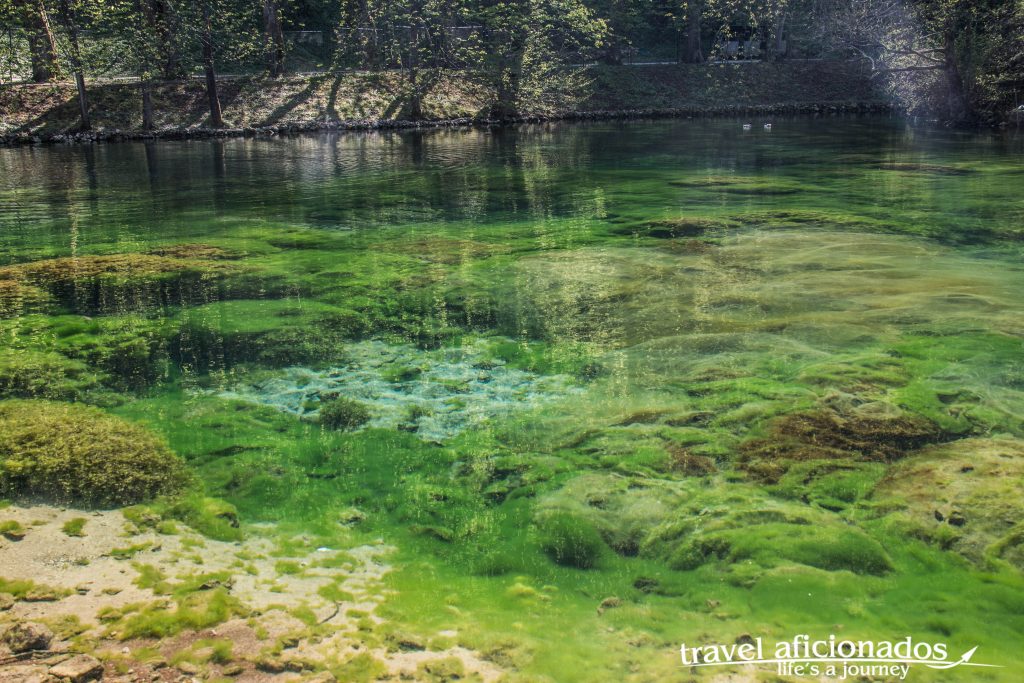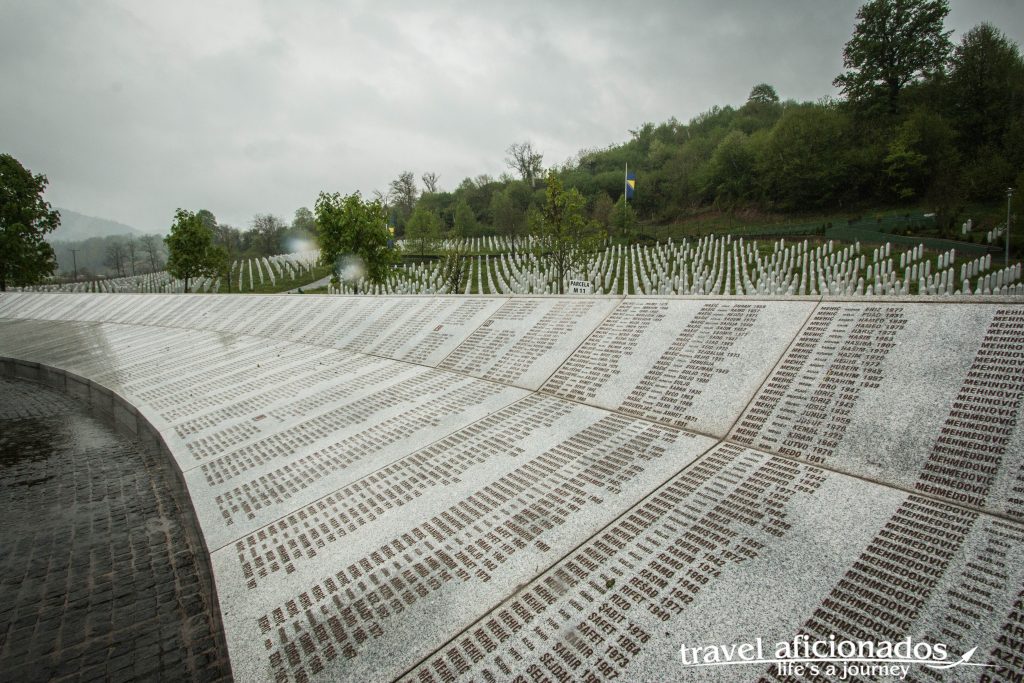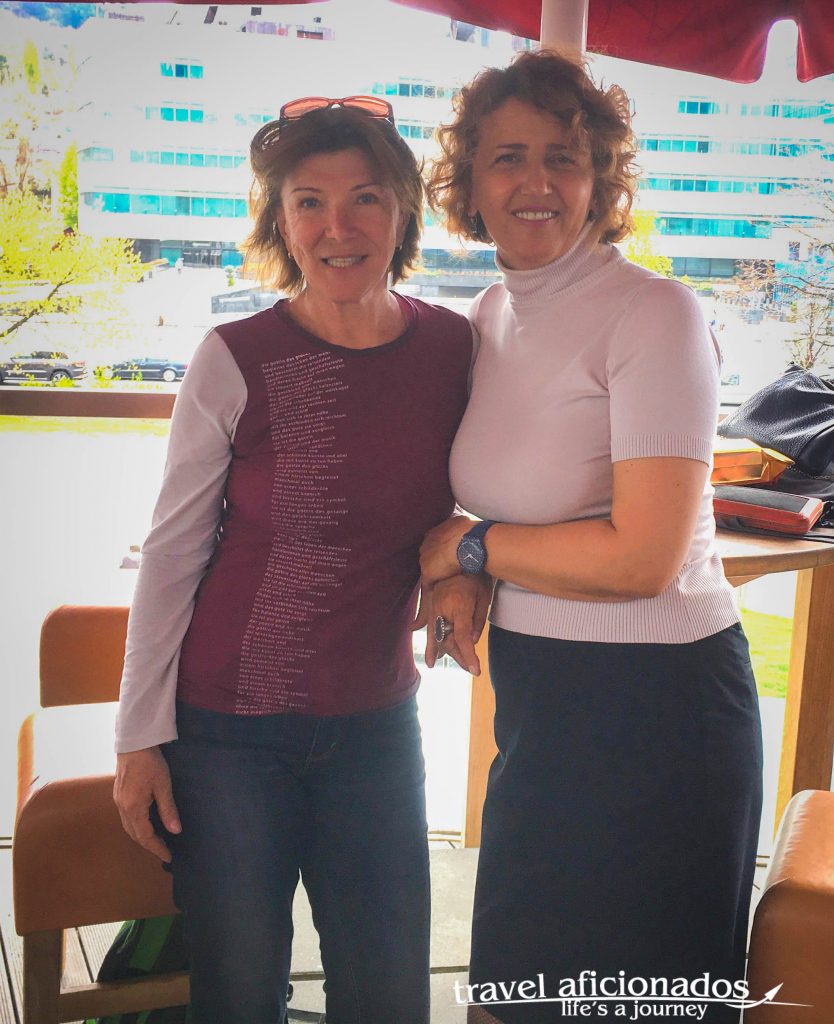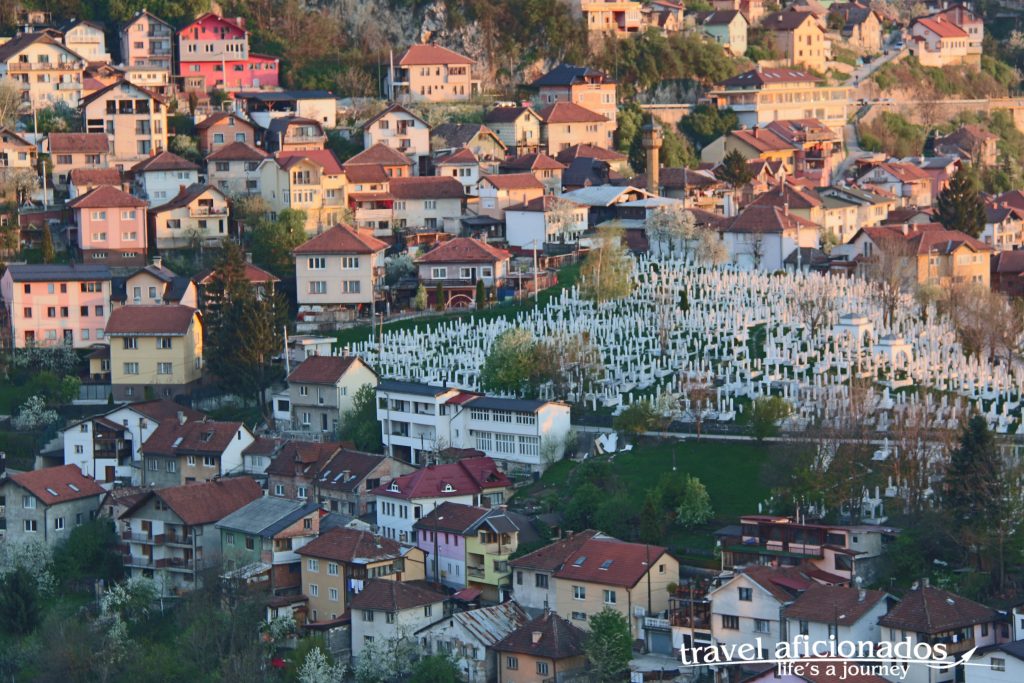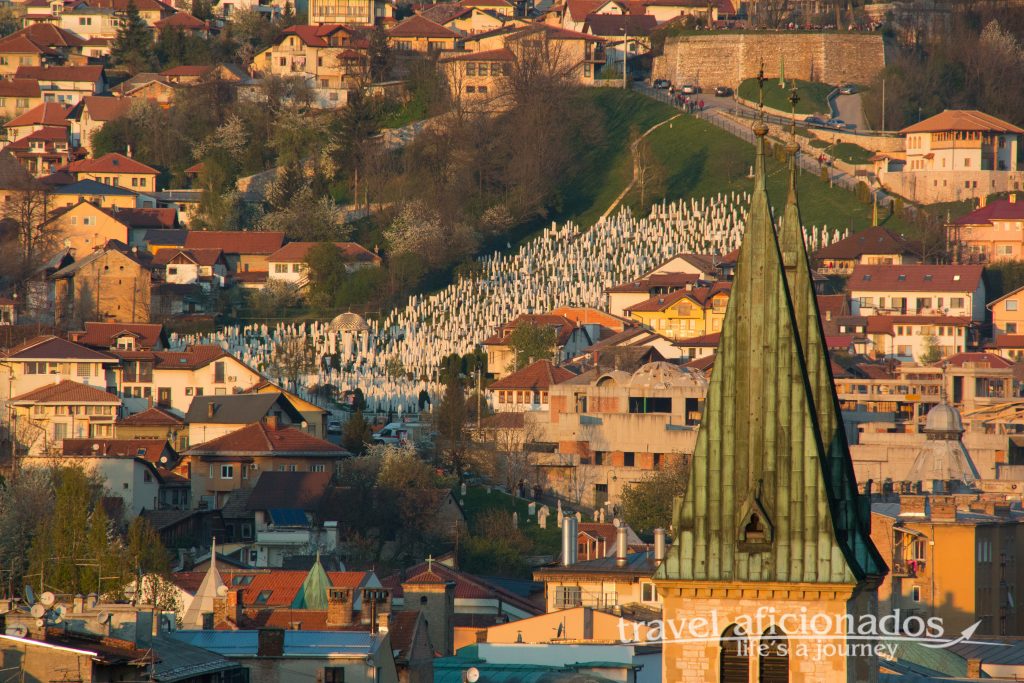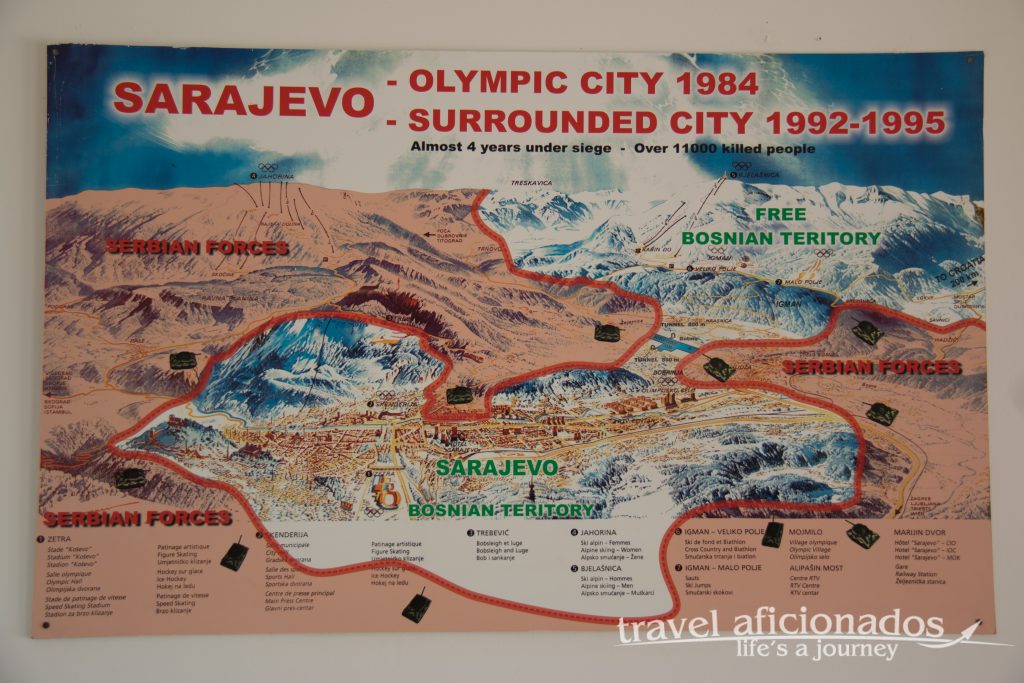- Bridge in Mostar, built in 1539
- View of Mostar
- Bridge in Mostar, built in 1539 – destroyed in 1993- reopened in 2004
- Bridge in Mostar, built in 1539 – destroyed in 1993- reopened in 2004
- Mostar along the Neretva River
- Mostar Traces of the war, often the ownership of these properties is in dispute
- Blagej – spring of Buna
- Blagej – spring of Buna
- Blagaj Tekija, a Dervish monastery outside Mostar- It is nearly 600 years old and sits right next to the spring of the River Buna.
- Inside Blagaj Tekija a Dervish monastery
- Inside Blagaj Tekija a Dervish monastery
- Mostar -Promenade above the river
- Mostar Souvenir stalls near Old Bridge
- Mostar – Cross on hill marks the Christian section of town
- Full moon over Mostar
- Travnik former Capital of Bosnia
- Travnik former capital of Bosnia
- Sarajevo Old Town Baščaršija
- Travnik Castle, Stari grad
- Travnik Castle, Stari grad
- Trafik- Selma and Heidi enjoying the best Cevacici
- Travnik – segregated schoo, renovated side in blue for Croatian students, run-down left part for Muslim students
- Bedrana and Heidi at the library of Ivo Antic’s house
- Travnik – vlada voda
- Travnik-Vlada Voda
- Travnik- Vlada voda
- Travnik – mosque
- Sarajevo Old Town Baščaršija
- Sarajevo Old Town Baščaršija
- Sarajevo Old Town Baščaršija
- Sarajevo Old Town Baščaršija
- Sarajevo Old Town Baščaršija
- Sarajevo Old Town Baščaršija
- Sarajevo Old Town Baščaršija
- Sarajevo Old Town Baščaršija
- Sarajevo Old Town Baščaršija
- Sarajevo Old Town Baščaršija
- Jewish Synague
- Church
- Sarajevo Latin Bridge is an Ottoman bridge over the river Miljacka
- Sarajevo Latin Bridge is an Ottoman bridge over the river Miljacka
- Sarajevo Latin Bridge is an Ottoman bridge over the river Miljacka
- View from Yellow Castle
- View from Yellow Castle
- Cemetery below Yellow Castle
- Cemetery below Yellow Castle
- Cemetery below Yellow Castle
- Cemetery for fallen soldiers
- Sarajevo view from Yellow Castle
- Sarajevo view from Yellow Castle
- Sarajevo view from Yellow Castle
- Sarajevo view from Yellow Castle
- Sarajevo Red Roses, those mark places where people where killed by artillery shells fired from the mountains
- Historic photo, citizens of Sarajevo trying to escape snipers
- Sarajevo National Library Vedran Smailovic playing in the partially destroyed building in 19992
- Tunnel of Hope, connected Sarajevo to the outside world during the siege
- Sarajevo- Tunnel of Hope surfaced under this house owned by the Kolar Family
- Sarajevo – Kolar family who owns the house where the tunnel surfaced
- Map of Sarajevo showing the frontline during the siege
- Sarajevo Serbian controlled district of Grbavica reached into the city
- Sarajevo- District of Grbavica, from the high-rises the Serbian artillery attacked the town
- Sarajevo highrises – showing travel of war
- Sarajevo- Romeo&uliet, Admira Ismic and Bosko Brkic, two young people of different religions were shot Vrbanya Bridge trying to leave Sarajevo during the 1425 day siege
- photo taken by @ of Admira Ismic and Bosko Brkic, who died embraced on Vrbany Bridge. The young couple of different religions were shot Vrbanya Bridge trying to leave Sarajevo during the 1425 day siege
- Vrbanya Bridge in 2017, there Amira and Bosko were shot in 1992
- Sarajevo traves of war, house near the bridge
- Sarajevo now this area is peaceful
- Sarajevo souvenirs made of bullets
- Sarajevo rural surrondings
- Sarajevo rural surrondings
- Sarajevo – View from surrounding mountains
- Sarajevo – View from surrounding mountains
- Sarajevo bobsleigh track built for the Olympics in 1984
- Sarajevo bobsleigh track built for the Olympics in 1984
- Sarajevo bobsleigh track
- Sarajevo Bare Cemetery were people of all religions are buried together
- Sarajevo Bare Cemetery were people of all religions are buried together
- Sarajevo Bare Cemetery were people of all religions are buried together
- Sarajevo Bare Cemetery were people of all religions are buried together
- Sarajevo Bare Cemetery were people of all religions are buried together
- Sarajevo Bare Cemetery were people of all religions are buried together
- Sarajevo Bare Cemetery were people of all religions are buried together
- Sarajevo Jewish Cemetery
- Sarajevo Jewish Cemetery
- Sarajevo Jewish Cemetery
- Sarajevo Jewish Cemetery
- Sarajevo Jewish Cemetery- hit by shells
- Sarajevo Jewish Cemetery-5
- Sarajevo Memorial for Children killed during the siege
- Sarajevo Memorial for Children killed during the siege
- Sarajevo Memorial for Children killed during the siege
- Sarajevo- Historic photo – the car of Archduke Franz Ferdinand before the attack that killed him and his wife
- Sarajevo place where Franz Ferdinand was shot
- Sarajevo- Plague reminding of the tragic event in Juni 1914 that led to WWI
- Sarajevo Tomb of Gavrila Princip
- Sarajevo Eldina and Heidi meeting near Sniper Alley
- Sarajevo Alma and Heidi talking at the Heinrich Böll Stifung
- Bosnian Food
- Bosnian Food
- Sarajevo- park benches serve as advertisement when not used
- Idlicka Spring of Bosne
- Ilidza – Vrelo Bosne, The springs of river Bosna is located in the southwestern part of the Sarajevo
- Ilidza – Vrelo Bosne, The springs of river Bosna is located in the southwestern part of the Sarajevo
- Ilidza – Vrelo Bosne, The springs of river Bosna is located in the southwestern part of the Sarajevo
- Ilidza – Vrelo Bosne, The springs of river Bosna is located in the southwestern part of the Sarajevo
- Ilidza – Vrelo Bosne, The springs of river Bosna is located in the southwestern part of the Sarajevo
- Ilidza – Vrelo Bosne, The springs of river Bosna is located in the southwestern part of the Sarajevo
- Ilidza – Vrelo Bosne, The springs of river Bosna is located in the southwestern part of the Sarajevo
- Ilidza – Vrelo Bosne, The springs of river Bosna , alley leading to NP
- Going to Ilidza by horse carriage- Vrelo Bosne, The springs of river Bosna , alley leading to NP,
- Ilidza – Vrelo Bosne, The springs of river Bosna, Old villa from Austrian monarchy
- Ilidza Velo Bosna
- Ilidza, downtown
- Srebrenica
- Srebrenica Memorial Hall
- Srebrenica Genocide Memorial
- Srebrenica Genocide Memorial
- Srebrenica Genocide Memorial
- Srebrenica Genocide Memorial – photos taken of photos inside Memorial Hall giving evidence of the situation in July 1995
- Srebrenica Genocide Memorial – photos taken of photos inside Memorial Hall giving evidence of the situation in July 1995
- Srebrenica Genocide Memorial – photos taken of photos inside Memorial Hall giving evidence of the situation in July 1995
- Srebrenica Genocide Memorial – photos taken of photos inside Memorial Hall searching for the victims of the genocide
- Srebrenica Genocide Memorial – photos taken of photos inside Memorial Hall searching for the victims of the genocide
- Srebrenica Genocide Memorial – photos taken of photos inside Memorial Hall, funeral for the victims of the genocide
- Srebrenica Genocide Memorial – photos taken of photos inside Memorial Hall, funeral for the victims of the genocide
- Srebrenica Genocide Memorial – photos taken of photos inside Memorial Hall, funeral for the victims of the genocide
- Srebrenica photo taken of photo inside Memorial Hall, it shows prisoners lined up

